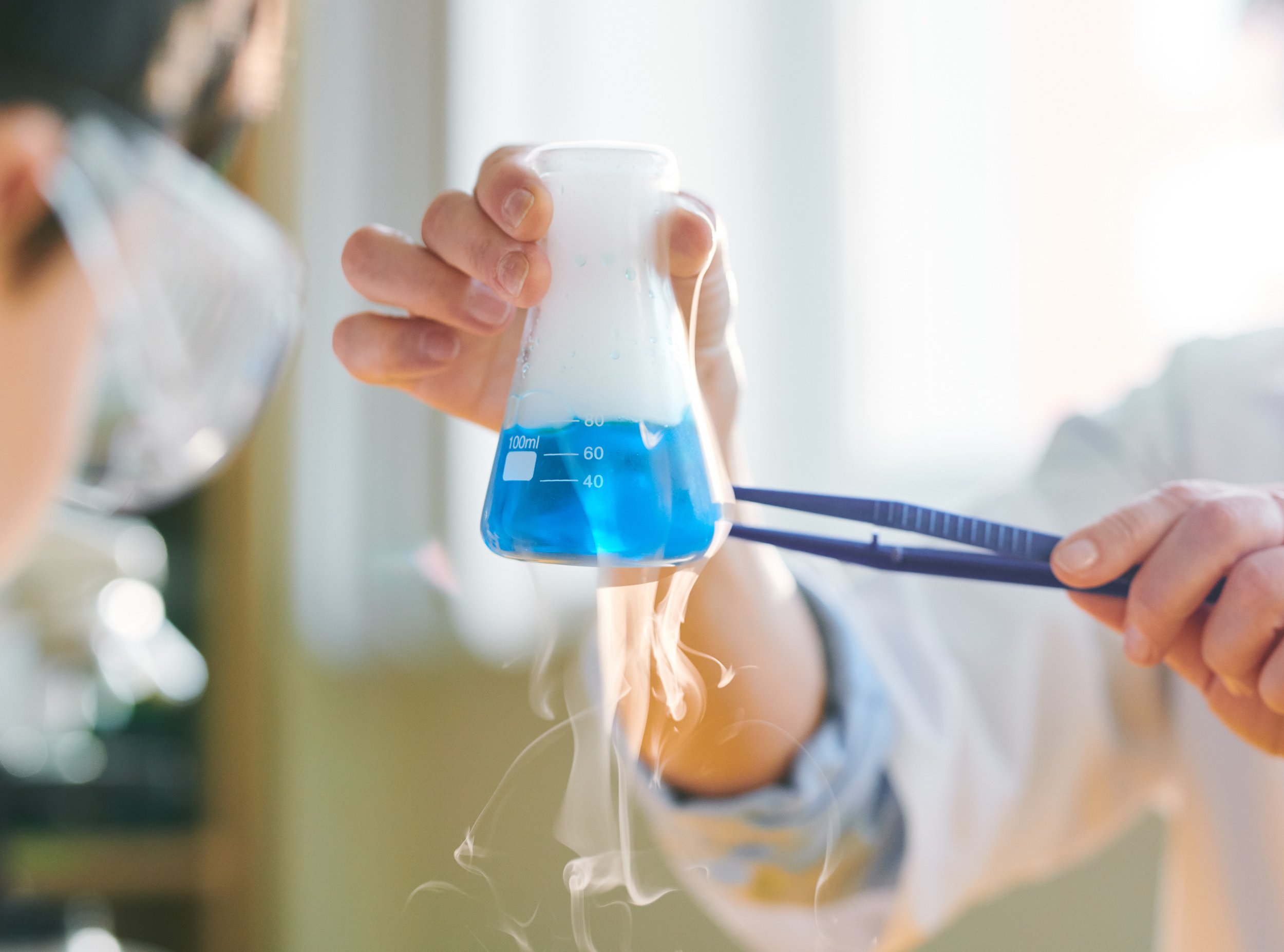
CHEMISTRY
Choose Ryburn Sixth for your course in A-Level Chemistry, a place where our exceptional teachers strive to help you achieve your potential.
Our chemistry course not only allows our students to learn and understand the concepts of chemistry, but also helps you develop skills to use in new and changing situations. We provide a link between theory and experimental work, as we believe our students can learn a lot from first-hand experience.
We hope that our students will grow to have an understanding and appreciation of the contributions of chemistry to society and the need for responsible scientific knowledge. During this course, students will also develop transferable skills such as research, analysis and problem solving.
Chemistry is a vast subject and there will always be a demand for well trained chemists in pharmacy, materials science or any medical profession. Our course is one of the foundations for many professions such as, medicine, geology, forensic science, biotechnology and the chemical industry.
What will I study?
-
A-Level Chemistry
Exam board: OCR
-
Chemistry is taught over two years. Learners will study the following topics';
Year 1:
- Development of practical skills
- Periodic table
- Energy
- Core organic chemistryYear 2:
- Physical chemistry
- Transition elements
- Organic chemistry and analysis -
Grade 6 in Chemistry or 6,6 in Combined Science & Grade 5 in Mathematics.
YOUR NEXT STEPS
YOUR NEXT STEPS
Chemistry is a fundamental science subject that is highly valued by employers and universities across numerous sectors. Studying the subject develops essential chemical knowledge and practical laboratory skills required for science-related degrees and research careers. You will also acquire valuable transferable skills such as analytical thinking, mathematical problem solving, attention to detail and scientific methodology that are highly sought after in a broad range of degree programmes beyond chemistry.
Past students have progressed to study diverse courses including chemistry, chemical engineering, biochemistry, medicine, dentistry, veterinary science, pharmacy, materials science, forensic science, environmental science, geology, physics, mathematics and food science.




